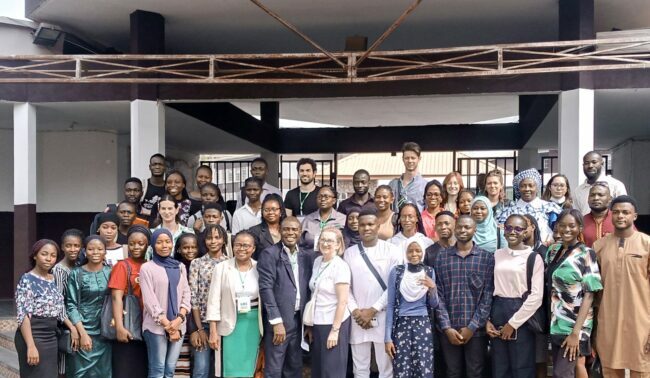With food security consistently threatened in Africa, food experts from the European Union and six African countries have called for a focus on food production in cities as opposed to over-reliance on food coming from villages.
The experts identified this imperative at the opening ceremony of the second General Assembly of the INCITIS-FOOD consortium and the opening of the Circular City Food Research and Training Facilities at the University of Ibadan.
The experts, led by the principal investigator, Professor Gertrud Buchenrieder, and the principal investigator, INCITIS-FOOD, University of Ibadan, Dr Oyediran Oyebola, advanced the idea that integrated farming should be implemented to improve the food system in African cities.
Speaking, Oyebola noted that the food situation in Africa is further affected by climate change and a lack of access to land for aqua-agronomic practices.
He stressed that integrated farming was more imperative as sustainable city food production was even threatened by access to agricultural land, which comes at a high cost in competition with industrial use of limited land.
Specifically, the consortium promoted the adoption of a circular model that integrates aquaculture with various plant, insect, and animal productions.
Oyebola noted that food production in the city would improve food conditions, but he also noted that technologies must be adopted to manage waste, utilise small land areas, promote soilless systems, and conserve water and resources in a mix of integrated and recycling approaches.
The experts bemoaned that Africa’s city food condition was challenged by issues of food inadequacy, high cost, loss of quantity and quality of food material during transportation, and fragile micronutrients often lost during transportation of food from rural to urban environments.
Oyebola said: “The city environment in Africa has problems because it takes days for the food from the villages to get to the city. Due to that, the nutritional quality of these foods is lost.
“Some micronutrients are no longer available. The way out is to produce in the city, but there is a problem of access to land as there is competition with people who buy land for industrial purposes.
“We need to increase food production in a city environment, improve the absorption of quality food and nutrients, and reduce the cost of producing it.
“The government will help by providing an enabling environment and developing policies that support integrated farming.”
Oyebola noted that it was in recognition of the dearth of knowledge about food production in cities that the consortium set up a forty-participant outdoor training centre at the University of Ibadan.
Inaugurating the centre, deputy Vice-Chancellor (Academics), University of Ibadan, Nigeria, Professor Aderonke Baiyeroju, stressed that all efforts must be geared towards overcoming the environmental and social issues associated with traditional agriculture and fish production in the city environment.
Baiyeroju identified the food system as a prime socio-economic and nutritional issue in African cities, with strategies consistently needed to improve food and nutrition security in city conditions.
This, she said, should be done through careful planning of waste cycling in aquaponic, hydroponic, and insect production systems on soilless substrates.
